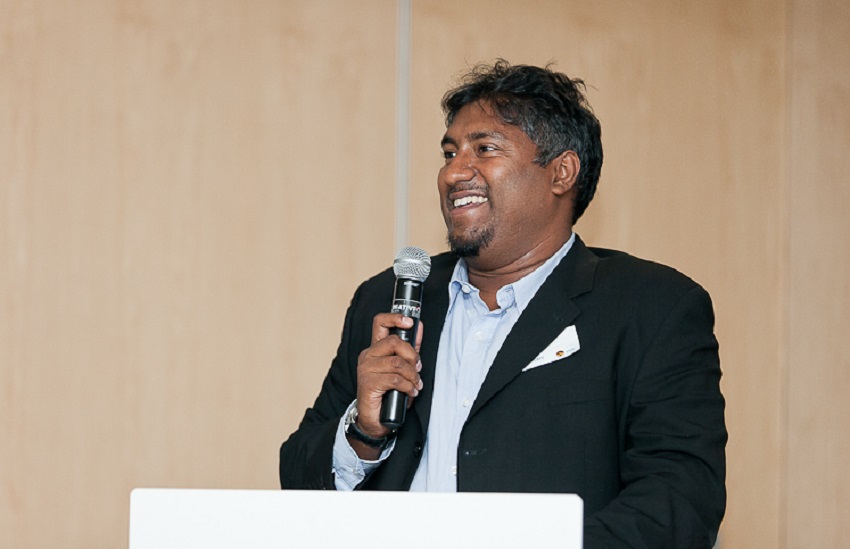Take a look at the CV of Silicon Valley-based South African Vinny Lingham and you’d have thought you were looking at that of a serial entrepreneur rather than a serial angel investor.
Well, you’d be right. Though an investor in a number of South African startups, Lingham tells Disrupt Africa he has an “entrepreneur hat” on at all times, rather than an “investor hat”, which he says is “not always a good thing”.
“I get it. I’ve been there and done it and I understand the pains of being an entrepreneur and can help guide them,” he says.
To say Lingham has “been there and done it” is a bit of an understatement. Born in East London, he left high school aged 17 and went on to study Information Systems at the University of Cape Town (UCT), though he never completed his studies. He founded web development platform Yola in 2007, which went on to raise US$25 million in funding from Johann Rupert’s Reinet Fund, and e-gift card service Gyft in 2012, which he sold for more than US$50 million last year.
Oh, and he is also the co-founder of the Silicon Cape Initiative.
Now, though, he is increasingly seen as an angel investor. He made early investments in the likes of Quirk (since acquired) and SkyRove, and was most recently seen doing his thing on television during Dragons’ Den SA, putting money into Ekaya, SA Florist and eShip.
Lingham says he has invested ZAR5 million (US$415,000) of his own funds into South African startups thus far, but says he hopes the returns drastically exceed that initial investment.
“I’m focusing on the startups that can really become billion dollar businesses. If I’m going to take a risk, I might as well bet on high upside companies, even if they have high risk,” he says.
For Lingham, the South African startup sector is improving all the time, but its attractiveness “boils down to the entrepreneurs”.
“I would say we have many diamonds in the rough, but unfortunately it takes many years to cut the diamonds,” he says, adding though there is some government support it is not enough to adequately support the sector.
“Also, people in government don’t really understand startups – so there is a huge disconnect here.”
It was this disconnect that inspired Lingham, along with fellow angel investor Justin Stanford, to launch Silicon Cape in 2009. The organisation has since gone from strength to strength, raising more than ZAR3 million (US$270,000) in funding from South Africa’s First National Bank (FNB), which outgoing chairperson Alexandra Fraser said would be used to hire full-time staff and expand certain operations.
Earlier this month, new chairperson Daniel Guasco told Disrupt Africa it was open to further funding. while it is also advertising for its first full-time operations manager, as the previously volunteer-led organisation looks to professionalise its operations.
“We wanted to give people a rallying point in South Africa to connect with each other and realise they are not alone in their entrepreneurial endeavors, especially in the internet space,” Lingham says.
“I think it’s come a hell of a long way. When Justin and I started the movement, we didn’t think we’d get more than a few hundred people behind it – but it’s got over 5,000 now – a huge achievement.”
Lingham says if Silicon Cape can educate the players in the ecosystem better – from investors, to founders, to service providers – everyone will benefit.
“The long term goal is for us to create better companies and outcomes for everyone,” he says.
Now based out of Silicon Valley, Lingham says he travels back to South Africa regularly in order to maintain his links with the country.
“I travel back and forth to South Africa about twice a year to reconnect and I still have family and close friends there. I have over a dozen investments in South African companies, so I like to keep up with what’s going on,” he says.


